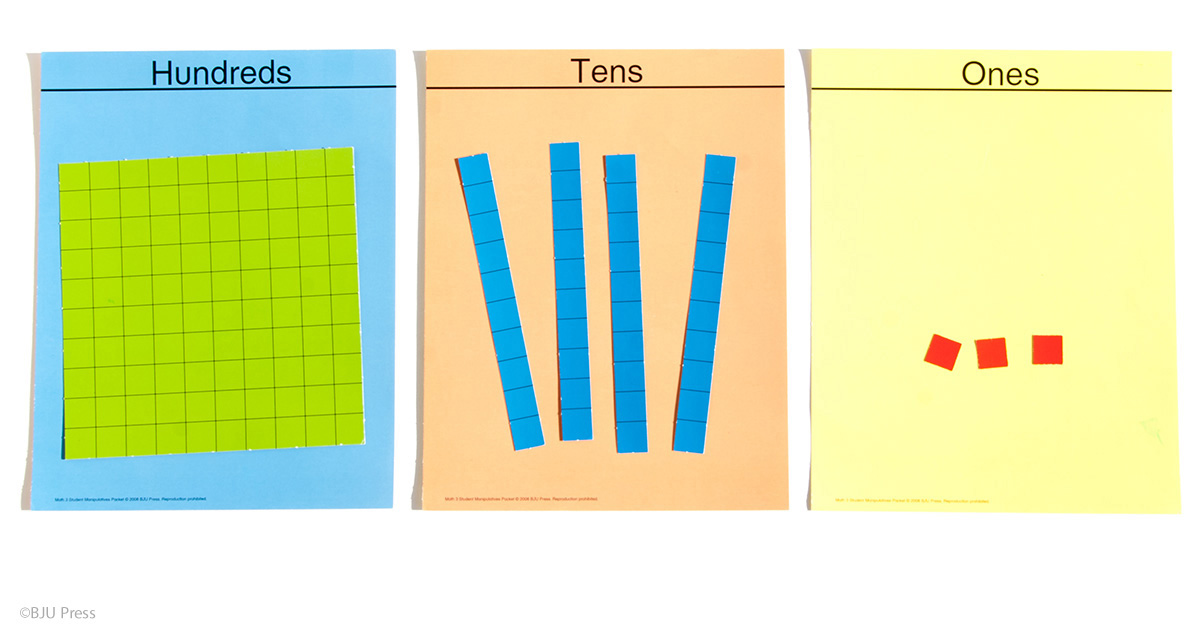Growing up, I didn’t like math. The subject became slightly more enjoyable for me when I got to “play” with the math manipulatives. Shapes were for making art mosaics. Paper money facilitated a pretend shopping spree to the bookstore. And Unifix cubes were (and still are!) just plain awesome for making patterns or sculptures.
You see, I was the homeschooled child who was unwilling to memorize number facts or equations unless I knew the reason why. Using manipulatives gave me a better understanding of the concepts being introduced in BJU Press Math. Instead of trying to calculate abstract numbers in my head, I was able to associate the equation with a concrete object.
A good math curriculum links concepts with tangible elements that visually demonstrate the problem.

Place Value Mat
Take, for instance, the concept of renaming in subtraction. How can a child understand that adding ten to the next place value (such as the tens or ones place) allows her to accurately find the answer? Using a place value kit with ones, tens, and hundreds reinforces the mental calculation of an equation using the senses of sight, touch, and sound (if she counts aloud).
Watch the first five minutes of this Math 2 Distance Learning sample lesson video with Mrs. Walker to see how a place value mat aids learning.
Build Understanding over Memory
Building number sense through this hands-on learning experience allows your child to understand how a problem is solved and not just memorize a formula to get an answer. Teaching what math feels and looks like by using manipulatives builds a true understanding of the subject. This fun math “playing” helped to develop my number sense without my even knowing it, and other children can benefit from this same experience.
The BJU Press Elementary Math curriculum introduces new concepts using manipulatives. Beginning with a tangible demonstration of math concepts builds your child’s understanding so that she can solve problems when those concepts are presented on paper. The goal is to develop her thinking skills so that she can be a lifelong problem solver because knowing how math applies to everyday life prepares your child for success in the role God has planned for her.
Today, math isn’t my favorite subject, but I do credit my ability to understand and solve real-life math equations in the kitchen, at the office, or at the store to my hands-on learning experiences as a child. Yes, math manipulatives are that foundational.
Which math manipulatives do your kids enjoy the most?
Leave a Reply